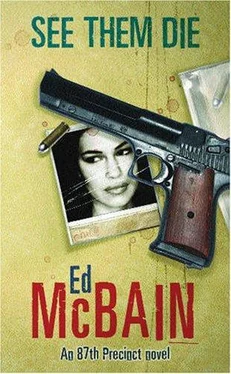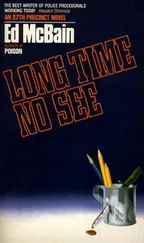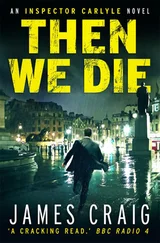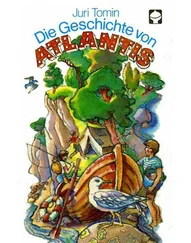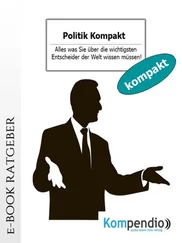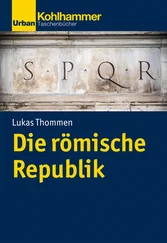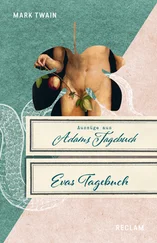Ed McBain - See Them Die
Здесь есть возможность читать онлайн «Ed McBain - See Them Die» весь текст электронной книги совершенно бесплатно (целиком полную версию без сокращений). В некоторых случаях можно слушать аудио, скачать через торрент в формате fb2 и присутствует краткое содержание. Жанр: Полицейский детектив, на английском языке. Описание произведения, (предисловие) а так же отзывы посетителей доступны на портале библиотеки ЛибКат.
- Название:See Them Die
- Автор:
- Жанр:
- Год:неизвестен
- ISBN:нет данных
- Рейтинг книги:5 / 5. Голосов: 1
-
Избранное:Добавить в избранное
- Отзывы:
-
Ваша оценка:
- 100
- 1
- 2
- 3
- 4
- 5
See Them Die: краткое содержание, описание и аннотация
Предлагаем к чтению аннотацию, описание, краткое содержание или предисловие (зависит от того, что написал сам автор книги «See Them Die»). Если вы не нашли необходимую информацию о книге — напишите в комментариях, мы постараемся отыскать её.
See Them Die — читать онлайн бесплатно полную книгу (весь текст) целиком
Ниже представлен текст книги, разбитый по страницам. Система сохранения места последней прочитанной страницы, позволяет с удобством читать онлайн бесплатно книгу «See Them Die», без необходимости каждый раз заново искать на чём Вы остановились. Поставьте закладку, и сможете в любой момент перейти на страницу, на которой закончили чтение.
Интервал:
Закладка:
"We don't have any boarders," Luis said, still laughing. "Teresa is safe."
Parker sighed and pulled a handkerchief from his pocket. He wiped his face with it and then said, "Well, back to crime prevention, huh? Sailor, I'd forget that sick grandmother if I was you. Get out of here. This neighborhood ain't for clean-cut kids."
"Who's clean-cut?"
"You're liable to be, if you don't take my advice. From ear to ear, you're liable to be."
"I'll chance it."
"Sure, chance it. Famous last words. I hope you're wearing your dog tags. We'll want to know where to send the body."
"Send it to his grandma," Zip said, grinning. "She's expecting him."
"Kid, you're lucky I'm in a good mood today," Parker said.
He turned back to Luis. "Hey, pinga?", "Si, cabron," Luis answered, and both men grinned as if pleased by their intimate use of profanity in addressing each other.
"If you hear anything about Miranda, don't forget me, huh?"
"I won't," Luis answered.
"Good. Adids."
He walked away from the luncheonette, blinking his eyes against the sunshine. He wondered why it was that he could have such a good relationship with Luis Amandez and such a bad one with Frankie Hernandez. Weren't both men Puerto Ricans? Of course they were. But Luis was different. Luis was willing to accept certain things about his own people, whereas Frankie was a son of a bitch who was just deaf and dumb on the subject. How could you hope to discuss anything intelligently with a guy who had a chip on his shoulder? Where was the give and take in a relationship like that? There just wasn't any. Now with Luis, Parker enjoyed a give and take. That's why it was so good. Why couldn't Hernandez be that way, too?
Parker sighed heavily.
It takes all kinds, he told himself. It takes all kinds.
5
Zip continued grinning until Parker had turned the corner and walked off up the avenue. Then the grin dropped from his mouth.
"You'd stool on Pepe for that rotten cop?" he asked Luis.
"Pepe Miranda is no brother of mine," Luis answered.
"A stoolie is a stoolie," Zip said. He swung around and walked to the jukebox. He studied the selections for a moment, inserted his coin, chose one, and then stepped behind the box and turned up the volume so that a mambo fairly blasted into the luncheonette.
"Lower that, lower that," Luis said.
"Shhh, man," Zip said, grinning. "I can't hear the music."
"I said lower that," Luis shouted, and he came around the counter, walked to the juke, and was reaching around to the back when Zip stepped into his way, laughing. The music screeched into the shop, trumpets bellowing, bongo drums pounding their steady beat. At the counter, Jeffs headache responded to the assault wave of sound. He turned toward the juke. The old man was still trying to reach the volume control. Zip, laughing, danced before him, blocking his path, stepping out of it, teasing the old man closer, blocking him again. The grin did not leave his face, but there seemed to be no humor in his laughing defense of the volume control. The old man lunged, and Zip stepped aside finally and danced into the street like a boxer moving away from the ropes. Luis located the volume control and turned it all the way down.
From the street, Zip said, "Not too low, you old bastard. That's still my loot in there."
Luis stamped angrily to the cash register He rang up no sale, took a dime from the cash drawer and threw it on the counter. "Here!" he shouted. "Take your money and go!"
Zip threw back his head and laughed, a loud mocking laugh which like his earlier smile was totally devoid of humor. "Keep it, dad," he said. "It probably took you all week to make."
"Puncture my eardrums!" Luis muttered. "On a Sunday morning! No decency, no decency!"
But the music, despite Luis' preference fcr comparative silence, seemed to have awakened the neighborhood all at once. The street had been as still and empty as a country road before the record started, and now it suddenly teemed with humanity. In the distance, the church bells had begun tolling again and, in response to the bells, the people of the neighborhood were coming out of the tenements, drifting down the steps leisurely because this was first call, and there was still time before the Mass would begin. The record spun to an end, but the church bells persisted, and the street was alive with color now, color which seemed appropriate to the heat of July, color so vivid, so tropical, that it assailed the eyeballs. Two young girls in the brightest pink came out of a tenement and walked arm in arm down the street toward the church. An old man in a brown silk suit, wearing a bright green tie, came from another tenement and began in the same direction. A woman carrying a red parasol to shield her from the sun walked with the dignity of a queen, trailing a boy in a short-trousered suit by her side. The people nodded at each other, and smiled, and exchanged a few words. This was Sunday morning. This was the day of rest.
From the other end of the street, rushing against the tide of humanity that swelled with a single mind toward the church at the far end of the block, Cooch appeared with two other boys. Zip saw them instantly, and went to join them.
"What the hell kept you so long?" he asked.
"We had to wait for Sixto," Cooch said.
"What the hell are you, Sixto? A man or a baby sitter?"
Sixto looked as if he were about to blush. He was a thin boy of sixteen with eyes that seemed ready to flinch at so much as an unkind word. He spoke English with a Spanish accent which was sometimes marked and sometimes mild. His voice was very soft, and he used it reticently, as if he were not ever certain that anyone wanted to hear what he had to say.
"I ha' to help my mother," he told Zip.
The other boy with Cooch was a six-footer with a face so dark that all personality somehow became lost in the overall impression of blackness. His features were a mixture of Negroid and Caucasian, a mixture so loosely concocted that even here there was an impression of vagueness, of vacuity. The boy was sixteen years old. He moved slowly, and he thought slowly. His mind a blank, his face a blank, he presented a somewhat creaking portrait to his contemporaries, and so they had named him Papa, as befitted a sixteen-year-old who seemed to be seventy.
"When my fodder go on a trip," he said, "I hep my mudder. He tell me to hep her." He spoke with a Spanish accent so marked that sometimes his words were unintelligible. At these moments, he would revert back to his native tongue, and this too added to the concept of a young boy who was old, a young boy who clung to the old language and the old slow-moving ways of a land he had deeply loved.
"That's different," Zip said. "When he's away, you're the man of the house. I'm not talking about a man's work."
Proudly, Papa said, "My fodder's a merchan' marine."
"Who the hell are you snowing?" Zip asked. "He's a waiter."
"On a boat! Tha' makes him a merchan' marine."
"That makes him a waiter! Listen, we've wasted enough time already. Let's lay this out. We're gonna have to move if we want to catch that eleven o'clock Mass." He turned suddenly to Sixto who had been staring blankly at the street. "You with us, Sixto?"
"Wah? Oh, yes. I'm ... I'm with you, Zip."
"You looked like you was on the moon."
"I wass thinkin' ... well, you know. This Alfredo kid, he not sush a bad guy."
"He's getting washed and that's it," Zip said. "I don't even want to hear talk about it." He paused. "What the hell are you looking at, would you please mind telling me?"
"The organ-grinder," Sixto said.
The organ-grinder had rounded the corner and stopped just outside the luncheonette. His parrot had bright-green feathers. The parrot perched on the instrument, accepted coins in his beak, gave them to his master, and then reached down to select a fortune slip from the rack of slips on top of the hand organ. A crowd immediately gathered around the organ-grinder and his trained bird. The crowd was a Sunday churchgoing crowd, bedecked in bright summer colors. The girls shrieked each time they read a fortune. The old men and the old ladies grinned knowingly. Jeff walked out of the luncheonette and handed the parrot a nickel. The parrot reached into the rack, peck, a narrow white slip appeared in his beak. Jeff took the slip and began reading it. The girls squealed in delight. There was an innocence surrounding the organ-grinder; the mechanical music he produced was countered by the skill of the bird and the faith of the crowd. For this was Sunday morning, and this was a time to believe in fortunes, a time to believe that the future would be good. And so they crowded the man and his bird, crowded around the sailor who read his fortune from the card and grinned, laughed again in delight as the parrot dipped his beak for another fortune. There was innocence here, and it shimmered on the summer air like truth.
Читать дальшеИнтервал:
Закладка:
Похожие книги на «See Them Die»
Представляем Вашему вниманию похожие книги на «See Them Die» списком для выбора. Мы отобрали схожую по названию и смыслу литературу в надежде предоставить читателям больше вариантов отыскать новые, интересные, ещё непрочитанные произведения.
Обсуждение, отзывы о книге «See Them Die» и просто собственные мнения читателей. Оставьте ваши комментарии, напишите, что Вы думаете о произведении, его смысле или главных героях. Укажите что конкретно понравилось, а что нет, и почему Вы так считаете.
